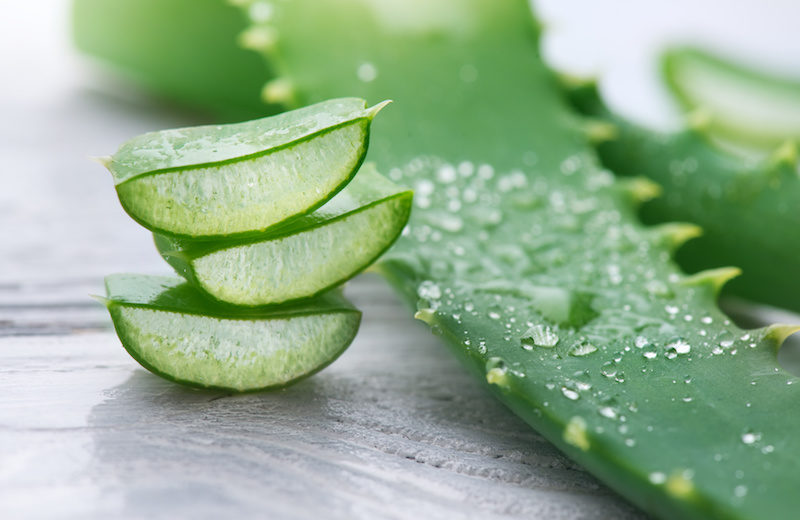Forty years ago, a few men with a passion for aloe and a vision for aloe’s future formed the National Aloe Science Council. The idea, the wisdom, and the word spread, and shortly later the name was changed to the International Aloe Science Council (IASC). Some of those founders have passed away, but their legacy and ideas live on. The goal was to promote the benefits of aloe, act as a watchdog over the industry, and to establish a quality of standards for aloe vera raw materials and finished products. These standards were to provide for industry self-regulation and a commitment to use authentic, high-quality aloe vera in a wide variety of consumer products.
Today, there are over 60 members that are dedicated to providing high quality-aloe vera and consumer products made with that same high-quality aloe vera. Interest in aloe has skyrocketed in the past few years with one simple reason: It works. Years ago it was joked that whoever told the best story about Cleopatra, Alexander the Great, or Pliny the Elder got the business. Today there are over 700 clinical studies and papers on PubMed.gov and solid, sound science has replaced the anecdotal evidence and historical stories from the past.
The IASC is guided by a Code of Ethics, Business Practices and By-Laws that reflects the ethics of the responsible center of the aloe products trade. By taking responsibility for their own business practices, the IASC and its members can ensure that those practices are formed by experience. The days of calling the IASC a “good old boy network” are long gone. The members and the Board of Directors are dedicated to providing only quality aloe and quality consumer products.
The heart of the IASC has to be its Certification Program. Building on a testing concept designed by member companies, the IASC developed the certification program to allow aloe growers, processors and finished product manufacturers to submit their facilities and products to a series of rigorous tests and audit program, which, if they passed, would allow for the certification of aloe and aloe products and the display of the IASC authorized Certification Seal on products and literature. Any product carrying this seal means the products are truthfully labeled, the aloe vera in the product meets theIASC standardsfor aloe vera quantity and quality, and the aloe vera used in the product is sourced from a certified facility. For the consumer, the Certification Seal indicates that quality aloe vera has been used to formulate the product, and guarantees that the product has met the IASC certification standards for quality and purity of aloe vera.
Adulteration and misrepresentation is a growing problem for many botanicals. The problem is so widespread that Mark Blumenthal, Founder and Executive Director of the American Botanical Council, started theBotanical Adulterants Prevention Program (BAPP)to identify and inform consumers of the worldwide issue. For years we have seen misbranded, misrepresented and flat-out adulterated aloe in products that have flooded the retail shelves. Certification by the IASC now has a greater importance with the new cGMP requirements. Identity, purity and strength testing of a dietary ingredient prior to its use is required by 21 CFR 111.75(a) (1) (i). These new requirements for testing will expose any adulteration of the Aloe. Some 200X Inner Leaf Aloe vera powders were found to contain maltodextrin; an IASC Certified and unadulterated 200X Inner Leaf Aloe vera powder is pure aloe vera solids. Many growers, processors and suppliers of aloe vera have welcomed the new cGMP requirements. Manufacturers of aloe vera drinks and supplements should embrace these new rules and be confident they are receiving “real aloe vera.” Manufacturers using aloe should also be using IASC Certified Aloe to ensure the quality and benefits of aloe are being passed on their customers.
The IASC has also been a strong voice to protect the use of aloe. It was IASC members that met with the National Toxicology Program (NTP) and with science and logic got them to use the term Non-decolorized Aloe vera Whole Leaf extract on a study that lead to California’s Proposition 65 using that same language and keeping IASC Certified products off their list. IASC Members are working worldwide to not just promote high-quality aloe but to ensure that all governments fully understand the benefits and safety of IASC Certified Aloe.
Interest in aloe is growing, and recently Global Data’sKey Insights from Global Data’s 2019 Q3 Global Surveyrevealed that more than seven out of 10 consumers feel that aloe vera has a positive effect on the body, and aloe has claimed the top spot out of 50 ingredients globally in every region but the Middle East and Africa, where ginger took first place, with support from 78% of consumers in the region.
With over 60 members and with literally hundreds of certified products, the IASC is destined to grow and to continue to be a force for the promotion, benefit and quality of aloe vera.

2025 Natural Choice Awards
March 31, 2025









